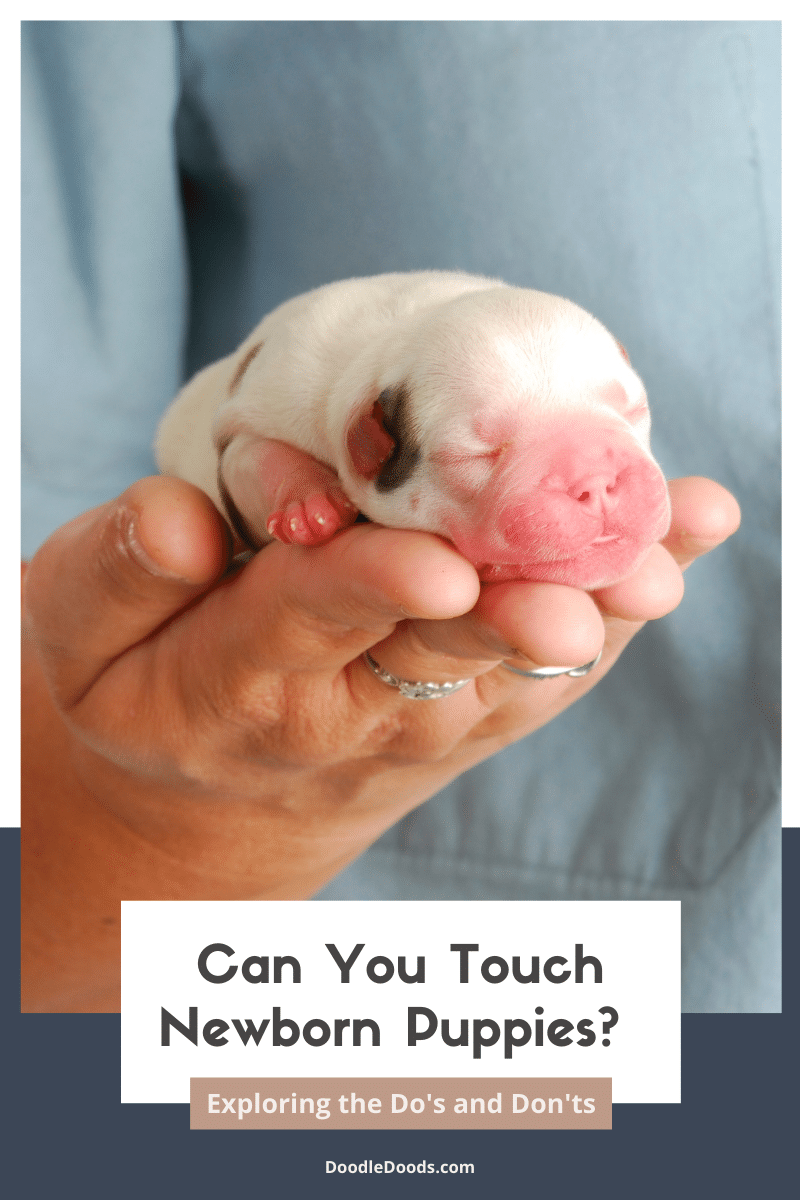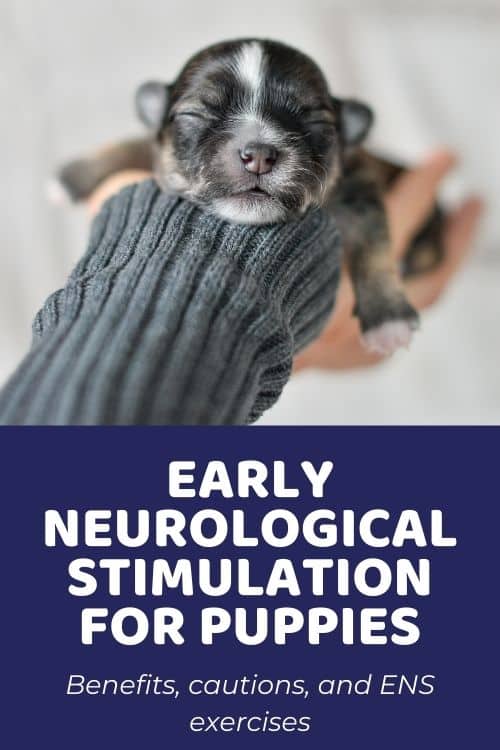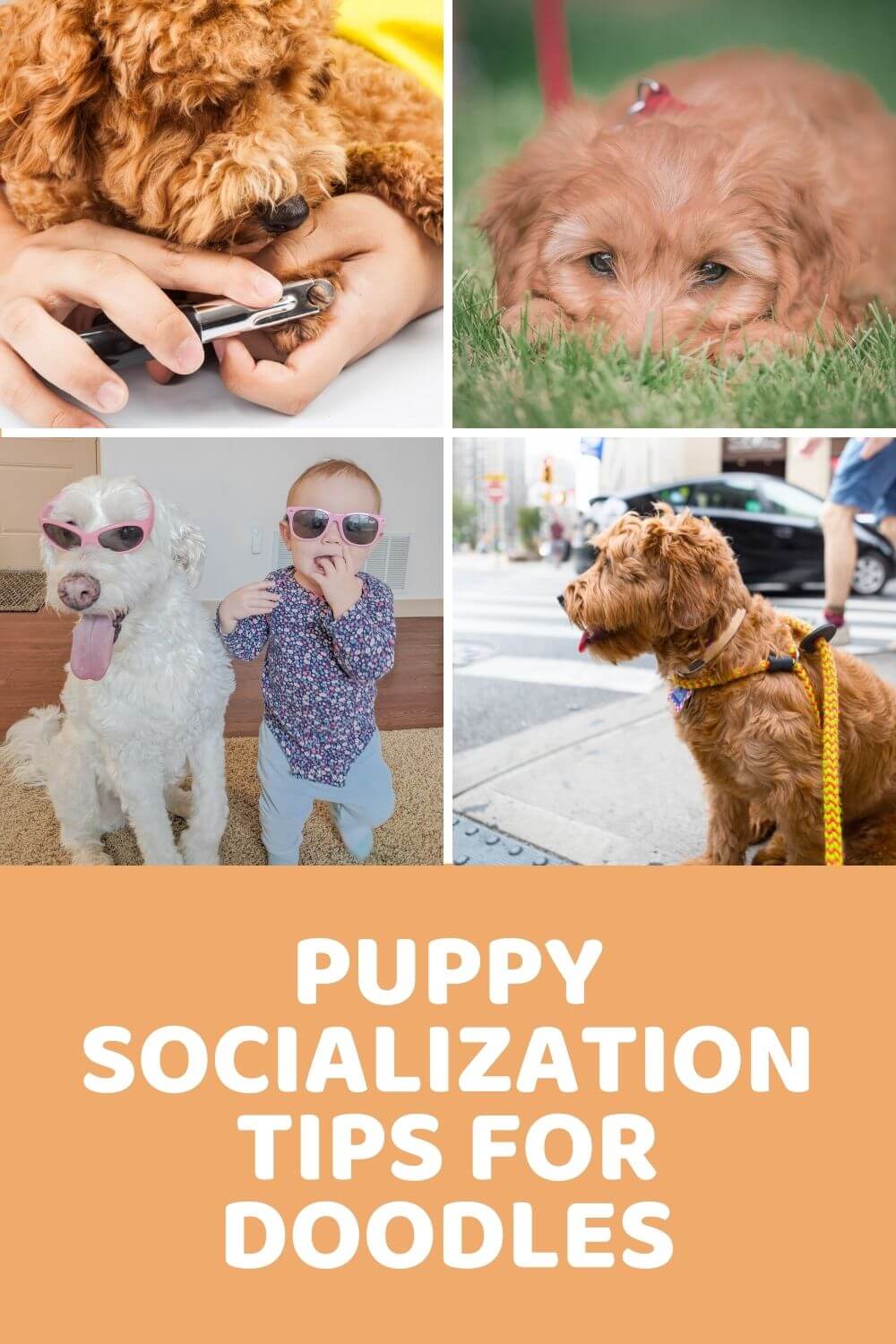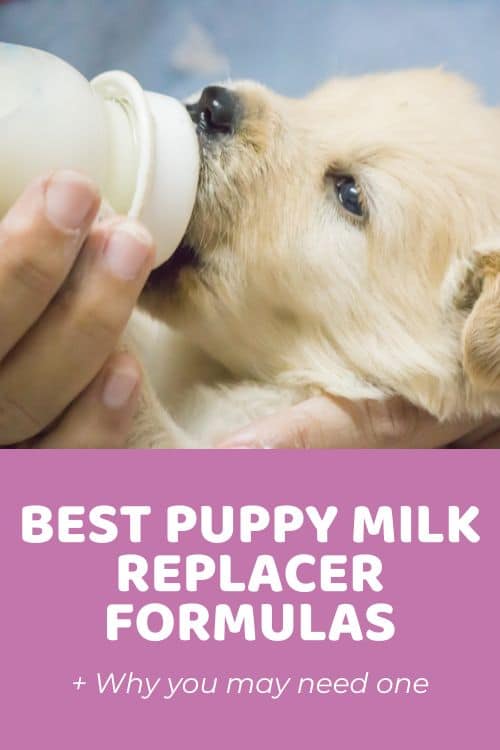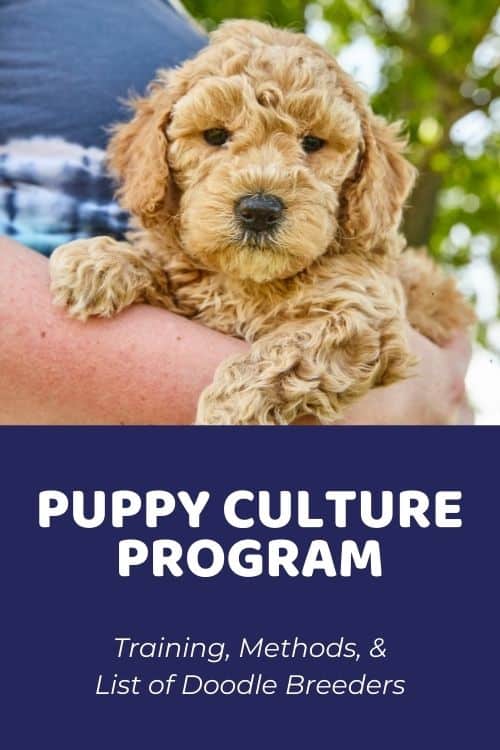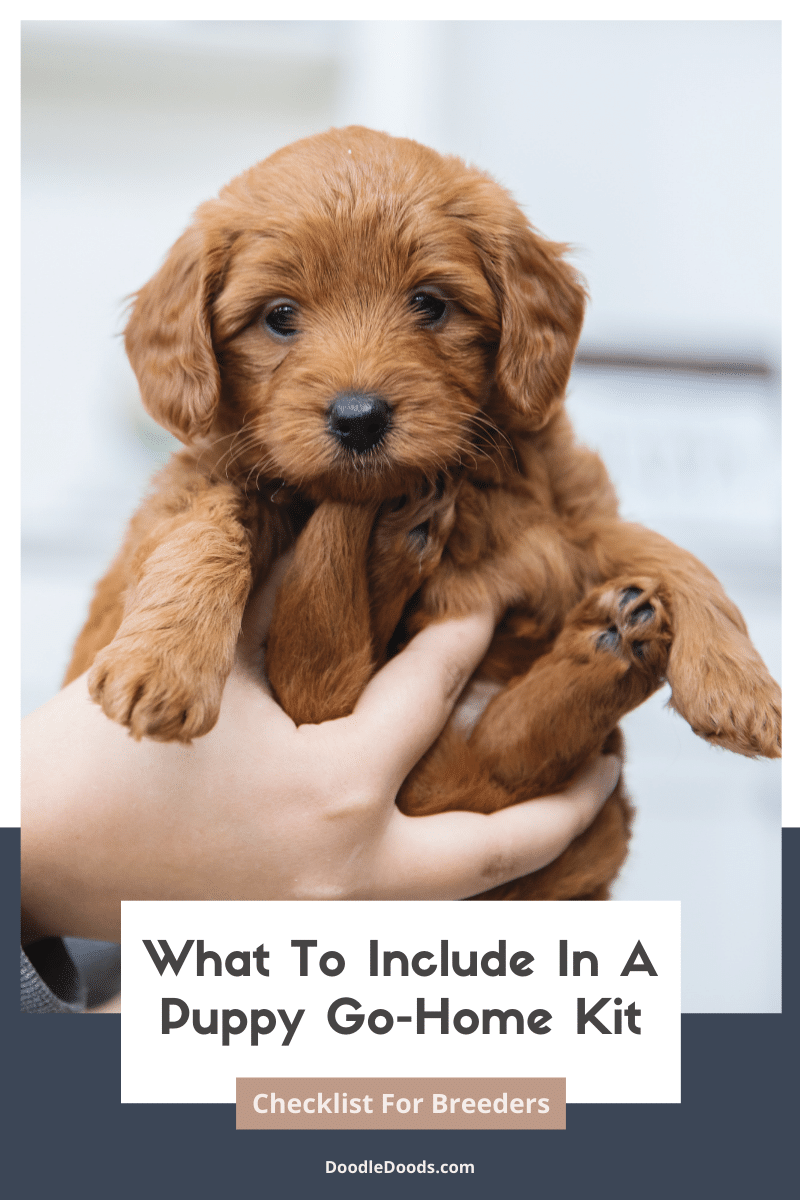Ah the wonderful time of precious new puppies entering this world! There’s something magical about getting to witness new fluffballs being brought to life, especially if this happens in your own home. But can you touch newborn puppies? That’s what we’re going to discover in this guide, so keep on reading to learn more!
Table of Contents
- Can You Touch Newborn Puppies: Intro
- Why Shouldn’t You Touch Newborn Puppies?
- When Can You Touch Newborn Puppies?
- Can You Touch Newborn Puppies: Will My Dog Reject Her Puppies If I Touch Them?
- How Can I Help Mother Dog?
- When Can I Separate Puppies From Their Mother?
- How Should You Care For Newborn Puppies?
- Can You Touch Newborn Puppies: FAQs
- Can You Touch Newborn Puppies: Final Thoughts
Can You Touch Newborn Puppies: Intro
Can you touch newborn puppies? Well, you’ll be glad to hear that yes, you can! However, it does come with certain considerations and precautions.
There’s so much to cover with this topic and we’re determined to answer all of your questions to ensure that you gain a deeper understanding of this delicate life stage. Some questions that we’ll answer in this article include:
- Can you touch newborn puppies?
- When can you touch a newborn puppy?
- If and why can’t you touch a newborn puppy?
- Will my dog reject her puppies if I touch them?
- When should you separate puppies from their mother?
- How can you help your mama dog?
- … and many others!
Why Shouldn’t You Touch Newborn Puppies?
You’ve probably heard that you should never touch newborn puppies, as their mother might reject them. Although this is more of a myth, there are actually several other reasons why you should limit touching and handling newborn puppies. But as you may have noticed, we said limit, not refrain from touching the puppies altogether.
When it comes to that delicate newborn puppy stage, it’s important that you keep in mind what a mentally and physically taxing time period this is for both the puppies and the mama. And you’re likely very stressed out, too!
On the other hand, dog experts, veterinarians, and reputable breeders all agree that some body handling can actually be beneficial for the pups. This helps them get used to body handling and helps them socialize with humans, which is essential for all pups. Of course, all body handling should be done very gently and not to an excess. They’re still very tiny and young puppies after all!
But why shouldn’t you touch newborn puppies? Let’s take a closer look.
Mother’s Stress
The mother dog, especially if she’s a first-time mom, may become anxious or stressed if her puppies are frequently handled by humans. The mama dog instinctively understands the needs of her puppies as well as her own. So, interfering with their special bonding time can lead to aggressive behaviors or that your mama dog won’t be able to properly care for her pups.
Risk Of Infection
Newborn puppies don’t have fully developed immune systems and they fully rely on their mother for literally everything – their food, warmth, health, and so forth. In fact, mother’s milk is full of those essential antibodies that help develop the puppies’ immune systems. As we can carry a ton of harmful bacteria and germs, it poses a risk of infection for the puppies.
If you thoroughly wash your hands before every time you handle the pups, it should be fine. However, make sure that you limit the puppies’ time away from the mother to ensure that they’re not exposed to germs and parasites.
Body Temperature Regulation
Another thing to consider is that puppies can’t regulate their body temperature effectively for the first few weeks of life. Again, they rely on their mother and littermates for warmth. If you handle the pups too much, you can expose them to cold. This in turn can be very dangerous, so keep that in mind. And even though your hands might be warm, there’s nothing like snuggling up with their mom to keep them warm.
Bonding And Feeding
Since puppies rely on their mother for pretty much everything for the first few weeks, make sure to give them that space and time to properly bond. It’s a whole other story if the mother doesn’t bond with her puppies or rejects one of them. But all in all, you should let the mother bond with her pups and let her do the nurturing if she seems interested in it. If you disturb their bonding process too much, it could also lead to issues with the puppies’ feeding schedule. If this happens, it can potentially lower their blood sugar to dangerous levels.
When Can You Touch Newborn Puppies?
But when can I touch newborn puppies?! I can’t wait any longer!
While it’s important to limit handling of newborn puppies during their first few weeks of their life, you can start to gently touch and handle them once they’re about three days old. However, keep these interactions brief and infrequent, and always ensure your hands are clean to prevent the spread of infections.
By the time puppies are about three weeks old, they begin to open their eyes and ears. This is often a good time to gradually increase handling and petting to help them get used to human touch and help with the socialization process. This should be done gently and in a calm environment.
Remember, the mama dog should be comfortable with your presence and handling of her puppies. Even as you start handling the puppies more, it’s crucial to allow plenty of time for the puppies to rest and nurse. If you notice any signs of stress or discomfort in either the mother or her puppies, reduce handling and consult your vet or an experienced breeder.
Moreover, always supervise young children around newborn puppies to ensure they’re gentle and respectful. Children can get a bit overly excited when having young puppies inside the house, and they may not understand how to handle them properly. For this reason, it might be best if you or another adult in your household did the body handling for the first few weeks of the puppies’ life.
Early Neurological Stimulation
If you’re not exactly sure how you should handle newborn puppies, then the Early Neurological Stimulation (ENS) method can be a helpful guide. Many dog breeders use the ENS method to help the pups get used to regular human contact and body handling. But not only that! The ENS method is also thought to improve the puppies immune systems, heart health, tolerance to stress, and diseases.
The ENS puppy training method consists of five different body handling exercises that are done once a day during the neonatal period. To be more precise, the ENS training starts at just three days old and you should do it until the puppies turn 16 days old.
Keep in mind that these exercises should only be done once a day, as doing them too much could have the exact opposite effect. It could also cause excess stress to the puppies and their mother, and disrupt their natural bonding process.
Needless to say, if the mother rejects her puppy or puppies, you have to take action to ensure that the puppies are properly cared for and nurtured. We’ll discuss this a bit later on in this guide.
Can You Touch Newborn Puppies: Will My Dog Reject Her Puppies If I Touch Them?
While it’s a common belief that a mother dog will reject her puppies if humans touch them, this is generally not true. Most dogs are perfectly fine with their trusted human family members handling their newborn puppies, particularly if the dog is well-socialized and familiar with you. So, if the mama dog is your beloved pet, she’ll likely be completely fine with you touching and handling the pups once in a while.
Nonetheless, you should always respect the mama’s space and trust that she can take care of her puppies. If she appears uncomfortable or protective, give her and the puppies some space. This might indicate that you’re inserting yourself too much into the equation. On the other hand, if you notice any signs of rejection, such as the mother ignoring the puppies or not allowing them to nurse, be sure to contact your vet immediately.
How Can I Help Mother Dog?
Although mama dogs usually know instinctively what to do and how to care for their puppies, you should still take certain steps to ensure that they’re comfortable and have everything they need to properly care for their pups. For instance, you should provide them a safe space to care for their pups, provide them with good nutrition, and keep an eye on their health and wellbeing.
Prepare A Comfortable Whelping Box
This is the area where the mother dog will give birth and care for her puppies. It should be quiet, warm, and easily accessible for the mother. Meanwhile, it should be safe for the puppies so that they won’t be able to wander off.
Make sure to always keep the area clean and warm. If any accidents happen, clean it up and provide new bedding for your mama dog and puppies. This way, you’ll prevent any bad bacteria spreading and minimize the risk of the puppies catching any infections.
Ensure Proper Nutrition & Hydration
The mother dog’s nutritional needs will increase significantly while she’s nursing her puppies. In fact, mama dogs should have unlimited access to food, as they have a completely different set of needs during pregnancy and nursing. You may also need to feed your mama dog a diet that’s specially designed for nursing or pregnant mothers to ensure that she’s getting all the essential nutrients she needs during this crucial stage.
In addition to that, make sure that your mama dog always has clean, fresh drinking water available. Nursing can make them especially thirsty, so make sure to keep an eye on that at all times.
Monitor The Mama Dog’s & Puppies’ Health
Keep an eye on the mother dog’s physical and emotional health. If she seems overly anxious, lethargic, or if you notice any physical changes like swelling, discharge, or fever, contact your vet immediately.
The same goes for the pups. If you notice anything out of the ordinary or any worrying signs, such as some puppies being more lethargic or not eating properly, make sure to consult with your vet as soon as possible.
That being said, regular vet check-ups are crucial to ensure the mother and her puppies are healthy. The vet will provide deworming and vaccinations when the time is right and can address any concerns you might have. They’ll also keep track of the puppies growth and development so that you can tackle any potential issues early on. For instance, if a puppy isn’t getting enough food or isn’t growing as fast as they should.
Limit Handling Of Puppies
While it’s important to monitor the puppies’ health and clean their whelping box, try to disturb them as little as possible, especially in the first few days after birth. Yes, it can be extremely difficult to keep your hands away from those tiny little fluffballs, but it’s essential that you contain yourself and let the mama dog do her thing.
You can, however, start with the ENS training once the puppies are three days old. And after about 3 weeks of age, you can start to increase the time you spend handling and interacting with the pups. This is an excellent way for the puppies to socialize with humans and get used to regular human contact.
When Can I Separate Puppies From Their Mother?
Puppies should generally remain with their mother and littermates until they are at least 8 weeks old. This period is crucial for puppies to learn important social skills and behaviors from their mother and siblings. Proper socialization is vital for all puppies, as it helps build their confidence and teach them how to interact with others around them.
Although puppies are typically weaned from their mother’s milk around 4 to 6 weeks of age, the period between 6 to 8 weeks is crucial for their social development. Removing a puppy from its mother and littermates too early can lead to behavioral issues in the future, such as fear, aggression, or difficulty interacting with other dogs.
After 8 weeks, puppies are usually ready to go to their forever homes. However, it’s equally important to continue with socialization and training after that 8 week mark. Early socialization should start the moment a puppy is born. Nonetheless, they should be consistently introduced to other pets and people of all ages all throughout puppyhood and their adult life.
PS! Make sure that you don’t introduce the puppies to pets that haven’t been fully vaccinated or struggle with illnesses. You’ll want to keep the puppies’ away from any potential risks as much as possible.
How Should You Care For Newborn Puppies?
Although ideally your mama dog will take care of her pups on her own during the first few weeks, there might be times when you have to step in and help them in the process. Or, maybe the mama dog has rejected one or more of their puppies. Either way, you have to be ready to take care of your newborn puppies if the mama can’t handle everything on her own. Here are some steps you should consider:
Keep The Pups Warm
As we mentioned earlier, newborn puppies cannot regulate their body temperature on their own, so it’s essential to provide them a warm, cozy environment. A heating pad or hot water bottle wrapped in a towel can help. An even better solution would be to purchase a puppy heating lamp. A puppy heating lamp will consistently keep the whelping box warm with no temperature fluctuations. With that being said, make sure that the whelping box doesn’t get too hot and that there’s a cooler area where the puppies can move if necessary.
Monitor Feeding
Puppies should nurse frequently in the first few weeks. If you notice a puppy isn’t nursing or doesn’t seem to be gaining weight, discuss this with your vet as soon as possible. Another thing to note is that some mother dogs lose their milk supply. If that happens, you have to get a puppy milk replacer that has similar benefits to mother’s milk. Moreover, make sure you stock up on bottle and syringe feeding supplies just in case anything happens to the mother’s milk supply.
Help With Elimination
For the first few weeks, mama dogs stimulate their puppies to pee and poop by licking them. If the mother isn’t doing this, you’ll need to gently stimulate their genital area using a warm, damp cloth. After about two weeks, puppies should start eliminating on their own. If that doesn’t seem to be the case, it’s time to call your vet.
Can You Touch Newborn Puppies: FAQs
Yes, you can hold newborn puppies if the mother is comfortable with it. However, make sure to keep those body handling sessions short and sweet to prevent any harm to the pups or disturb their bonding and feeding process with the mother. The ENS method is an excellent way for the puppies to get used to regular human contact.
There are many possible reasons why a mother dog might reject one of their puppies. For starters, mama dogs instinctively know if there’s something wrong with a puppy, such as a birth defect or illness. They might reject the puppy to focus their resources on the healthier ones, which can increase the survival rate of the rest of the litter.
Another common cause is that some puppies might be smaller and weaker than their siblings. If they struggle to get to the mama for feeding, the mother might reject them. Additionally, if a mother has a large litter, she may not have enough milk or energy to care for all the puppies. In those instances, the mama might reject one or more puppies. And lastly, if the mama dog is stressed or anxious, or simply too young to have puppies, she may accidentally or intentionally neglect one or more of her pups.
If you notice that the mother dog is rejecting a puppy, it’s important that you intervene immediately. The rejected puppy will need to be hand-fed and kept warm. It’s also crucial to consult with your vet as soon as possible, as the puppy could have an underlying health issue that needs to be dealt with.
It can be a bit tricky to determine whether or not a newborn puppy is hungry. However, there are some signs you can look out for, such as constant crying, restlessness, poor weight gain, or lack of interest in nursing. There’s also the possibility that a puppy will have visible ribs and hip bones if they haven’t been eating properly for a while.
Can You Touch Newborn Puppies: Final Thoughts
To sum up the answer to your question “can you touch newborn puppies?”, then yes, you can. However, we do recommend you let your mama dog do her job just how nature has intended her to. Mother dogs are surprisingly smart and they understand well what their puppies need. Some short sessions of handling the pups are completely fine, but make sure that you don’t interfere too much when the puppies are still in the neonatal period. Even though it can be difficult to keep your hands off of those sweet little pups, try to give the mother and her babies some space during the first few weeks.
Learn How to Care for Your Doodle Puppy!
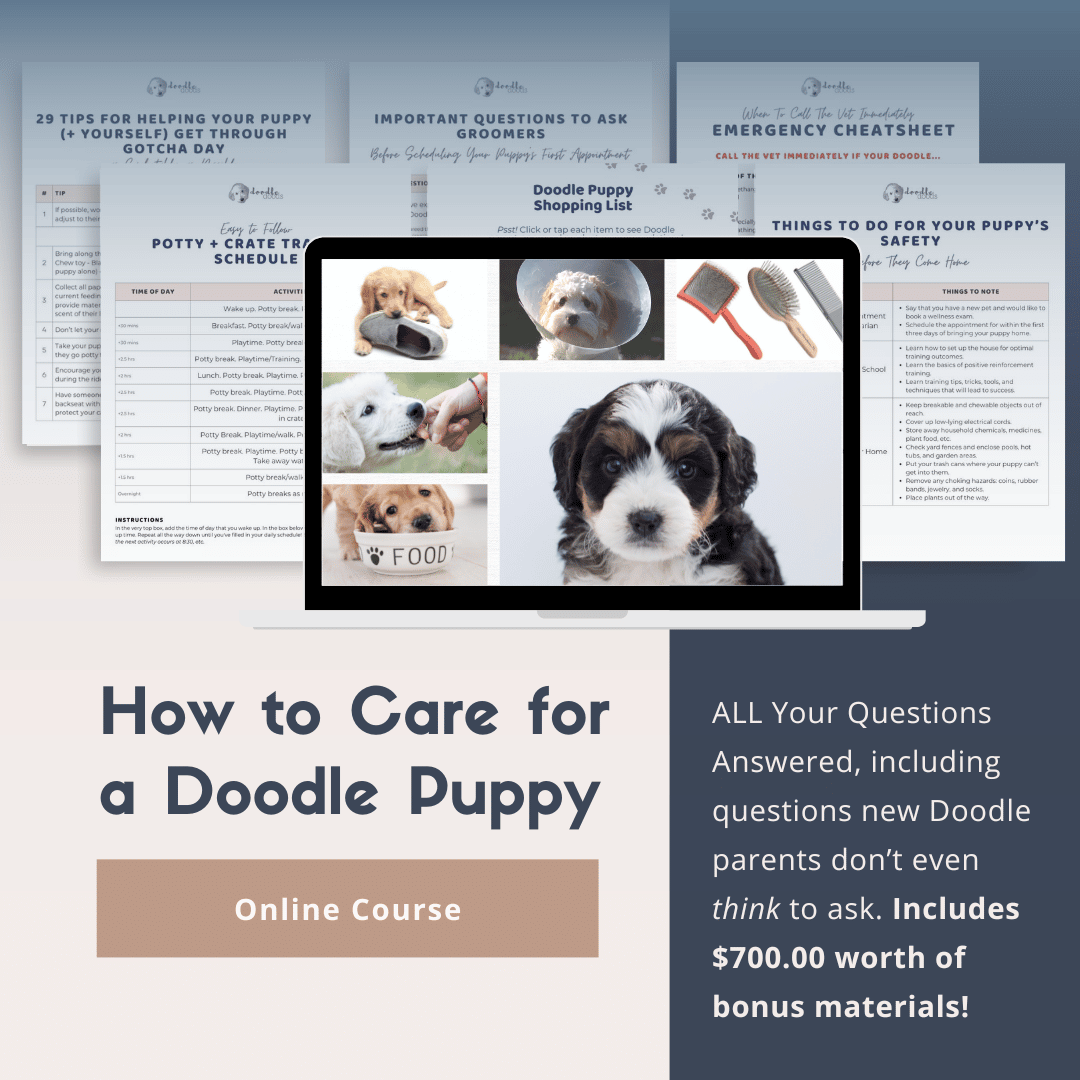
Perfect for first-time Doodle parents, get ALL your questions answered, including questions new Doodle parents don’t even think to ask.
Plus, get $700 worth of Bonus Materials for FREE, including:- Doodle Parenthood Community and Support Group ($190 value)
- Doodle Puppy Growth Tracker ($20 value)
- EMERGENCY Cheatsheet: When To Call The Vet Immediately ($50 value)
- HELP! Button ($145 value)
- And SO MUCH MORE!

